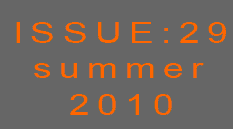ENS NEWS N° 29:
We live in the age of social media; an age of virtually limitless opportunities and ways of communicating. The style and language used in social media is economical, informal and accessible to all. One of the main social media phenomena is Facebook. Since Mark Zuckerberg first created it in 2009 it has literally exploded onto the scene. Today, Facebook has over 400 million users worldwide, making it the second most visited website on the planet after that of the ubiquitous google empire. The Twitter phenomenon burst onto the scene even more recently and has quickly taken hold. And other social media platforms are undoubtedly being invented as we speak.
I was recently asked if I regularly update my Facebook profile. Well, I have to confess that I don’t even have a Facebook page, so that could prove a little difficult. I contribute rarely to blogs and have never experienced the parallel universe of Second Life. Indeed, my kids most probably think that I am a twit not to twitter and that I ought to get a life – any life, not necessarily Second Life! As a communicator I ought to make more of an effort, but I haven’t been bitten by the bug yet.
I have also been asked why many people think that the world of science, once referred to as the “apotheosis of the intellect,” has been slow to embrace the more prosaic world of Facebook and Twitter. The question hints at the oft-held view that scientists are somehow divorced from the mainstream reality of life, oblivious to emerging social phenomena; preoccupied with more fundamentally important things than new-fangled, transient ways of communicating. Well, such a view is, of course, simplistic in the extreme; a sweeping generalisation. Science is life and scientists can be as sensitive to the latest social trends, language forms and technological phenomena as anyone. A quick surf on the internet will reveal that there are countless blogs addressing scientific issues online and forums tackling controversial contemporary topics like GMOs, stem cell research, robotics and animal testing. Several scientific societies and research-based industrial companies have their own blogs, exploiting social media as a means of getting their messages across and keeping in touch with evolving trends. The Young Generation Nuclear network is a skillful exponent. Scientists of all ages use social media. Similarly, some don’t.
The truth is that whether social media are your cup of tea or not, the new contemporary language they speak needs to be mastered, whether we like it or not. Social media are here to stay. To dismiss or ignore them could be costly. Our adversaries use them to good effect to reach an ever-wider audience. They can offer us too a whole new world of opportunity to show to the millions of people who use Facebook, Twitter and the other social media out there how nuclear science is about the bottom-line, gritty reality of everyday life; every bit as contemporary and relevant as social media. Surely, we must use every channel at our disposal to highlight the numerous applications of nuclear technology, to gain greater visibility for our work and to improve public acceptance of nuclear energy? In a world where communicating has become a religion, we cannot afford not to embrace social media – however populist and trendy they might appear at first to some of us? Why don’t you share with ENS NEWS your views and experience of using social media. Meanwhile, I promise to learn to tweet and blog more efficiently.
Well, before you set off on your hard-earned summer holidays, ready to blog and tweet to your heart’s content, I hope you will take time to read, and enjoy, ENS NEWS N° 29.
ENS NEWS N° 29 kicks off with a Word from the President that focuses on the contribution that NucNet has made to the nuclear community in the twenty years since it was founded. Andrew Teller then explores the murky world of Frankenstein alternatives and how the anti-nuclear lobby exploits every opportunity – gothic or otherwise – to spread false information about nuclear energy.
In the ENS Events section there is a detailed report and personal analysis of the recent ENC2010 conference from Bernard Bonin from the ENS High Scientific Council.
In this bumper summer edition the contributions to the Member Societies and Corporate Members’ section are simply too numerous to mention individually. They include a report on the 2010 WONUC nuclear marathon, an analysis of smart grid islanding, news from Finland on the EPR and ONKALO construction sites, a variety of news updates and educational and artistic initiatives from several member societies and Women in Nuclear.
As usual, the YGN has been very active. Two roving reporters give us their YGN take on the ENC2010 conference in Barcelona, where the European YGN also held its Core Committee Meeting. There is also a report from the North American chapter on a nuclear workshop held recently in San Francisco.
Finally, the World News section features an overview of the nuclear scene in Taiwan, a selection of articles from NucNet and the usual information update on upcoming ENS conferences.
Enjoy ENS NEWS N° 29!
On behalf of the whole ENS NEWS team I would like to wish all readers a relaxing, well-earned and invigorating summer break.
|

Mark O’Donovan
Editor-in-Chief, ENS NEWS
|
|
|

